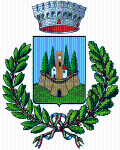Descrizione
Il toponimo è’ attestato per la prima volta nel 1070, la presenza di un castello è documentata solo negli anni 1127 e 1158 sotto il controllo dei Lambardi Scelvolenses che fecero parte del ceto dominante il comune di Siena. La chiesa di San Martino è menzionata nel 1203 nell’accordo di pace fra Siena e Firenze, essendo Selvole prossimo al fiume Arbia che definiva il confine.
Nel XIII secolo si trovò al centro di un territorio popolato da almeno 90 famiglie e proprio nel 1230 il fortilizio fu assalito e distrutto dai fiorentini . Nel catasto del 1320 Selvole, di proprietà Malavolti, appare a capo di una curia composta da molti poderi e viene censito sia il castello (castrum) che il villaggio.
Nel XV secolo vi furono richieste e anche finanziamenti per recuperare il castello e dotarlo di una torre, ma nel 1479 fu nuovamente attaccato e devastato dai fiorentini che per un po' lo occuparono. Nel 1575 la chiesa minacciava rovina e venne deciso il restauro, nei successivi due secoli venne titolata a Santa Caterina, mentre nel 1881 un documento storico la indica come S. Bartolomeo. La chiesa risulta oggi titolata a S. Martino e una targa datata 1898 indica la costruzione della sagrestia.
Alla fine del XVII secolo è attestato il comunello di Selvoli e Pieve Asciata che nell’area registrava la presenza di molti poderi, di cui uno a Selvole e altri due nel villaggio prossimo, definito Villa di Mezzo e Presciano con Villa di Sopra e di Sotto.
Il castellare con Villa signorile e oratorio è indicato già prima del 1843 da Emanuele Repetti, ma contraddetto dal Merlotti nel 1881 che descrive la situazione con ruderi e poche case, alcuni corpi di fabbrica annessi alla Villa riportano date dal 1895 al 1898.
Del castello di Selvole si conserva una torre mozza trasformata in abitazione.
In un raggio di circa 100 mt da Selvole sono stati osservati almeno 4 siti archeologici con datazioni assai diverse. 1)Materiale sporadico di generica età romana, 2) rinvenuto pugnale in ferro definito paleoetrusco, generica protostoria, 3) attestate punte di freccia in selce- di età eneolitica ( 3400/2200 anni a. C.) 4) rinvenuta fibula barbarica decorata, riferibile all’ alto medioevo, VI/VII sec.d.C.
English version:
The first mention of the place name was in 1070, but the presence of a castle was documented only in the years 1127 and 1158 under the control of the Lambardi Scelvolenses who were part of the dominant class of the municipality of Siena. The church of San Martino was mentioned in 1203 in a peace agreement between Siena and Florence, as Selvole was close to the Arbia river, which delineated the boundary.
In the 13th century it was the hub of a territory populated by at least 90 families, and in 1230 the fortress was attacked and destroyed by the Florentines. In the 1320 land registry, Selvole, owned by the Malavolti family, appears as the seat of a curia made up of numerous farms, and both the castle (castrum) and the village are mentioned.
In the 15th century, there were requests and funds were given to restore the castle and build a tower, but in 1479 it was attacked again and taken over by the Florentines, who occupied it for a while. In 1575 the church was in disastrous condition, and it was restored; in the successive two centuries it was dedicated to Santa Caterina, but in 1881 an historical document indicates it as S. Bartolomeo. The church is now dedicated to S. Martino and a plaque indicates 1898 as the year of the sacristy's construction.
At the end of the 17th century there was documentation of the common of Selvoli and Pieve Asciata and the presence of numerous farms was recorded in the area, including one in Selvole and two others in the next village, called Villa di Mezzo and Presciano with Villa di Sopra and Villa di Sotto.
The castle ruins and the stately Villa and oratory were mentioned prior to 1843 by Emanuele Repetti, but this was contradicted by Merlotti in 1881, who described a location with ruins and a few houses; a few outbuildings of the Villa bear dates between 1895 and 1898.
Selvole's shortened castle tower remains, and has been transformed into a dwelling.
In a radius of about 100 meters from Selvole, at least 4 archeological sites have been found, dating to very different periods: 1) sporadic material generically dating to the Roman era 2) an iron dagger defined as paleo-Etruscan, generically proto-historical, 3) documentation of Eneolithic flint arrow heads ( 3400/2200 b.C) 4) find of decorated barbarian fibula, from the early middle ages, VI/VII cent. A.D.
Modalità d'accesso
sempre aperto
Indirizzo
Punti di contatto
Ultimo aggiornamento: 4 marzo 2024, 12:23

